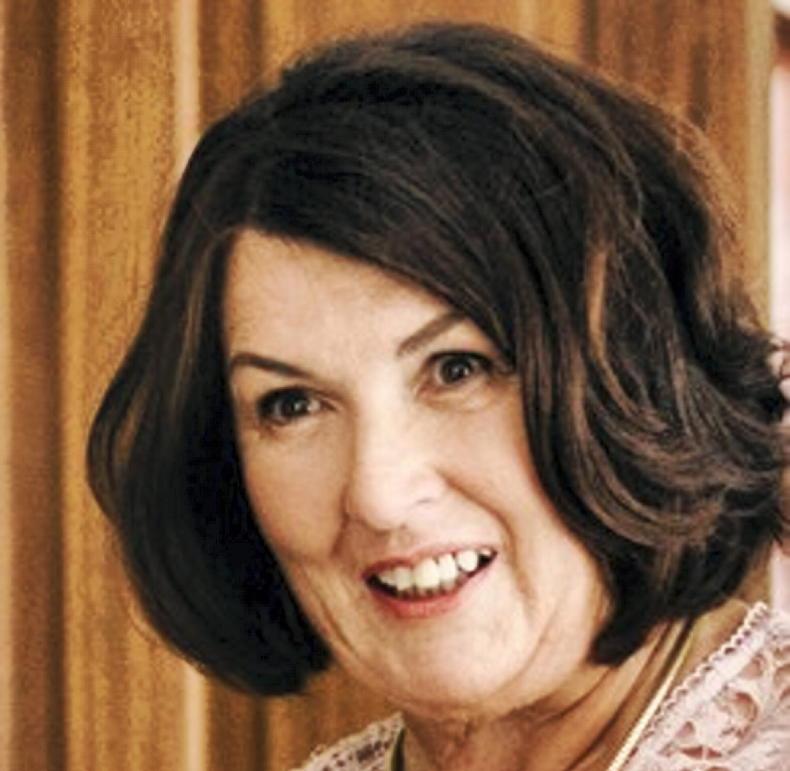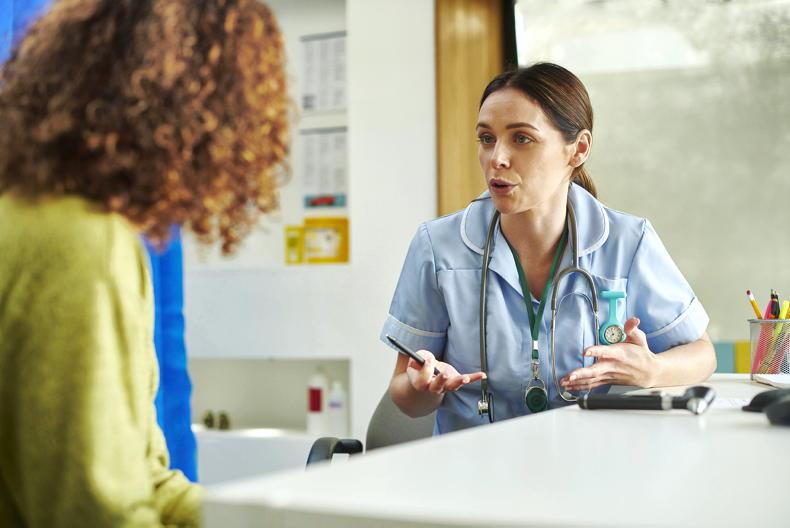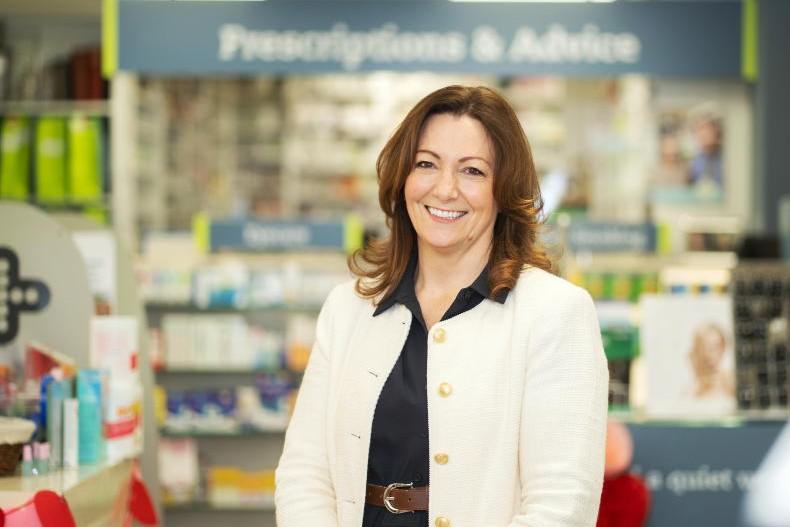Words that are too long and too big – does your doctor or pharmacist use them? Does that leave you in the dark about what’s really wrong with you, what your treatment involves and when exactly you should be taking your tablets?
The term ‘health literacy’ is a bit of a stained glass term rather than a plain glass one, unfortunately, a pity given that the topic is meant to be crystal clear. Maybe it’s better to think of it as, ‘understanding health-related explanations and instructions’, or ‘having the knowledge, confidence and skills to seek out and understand useful health information’.
With one in four Irish people struggling with reading, writing and numeracy, it is an important topic. This statistic means that many people struggle to find and evaluate health information, which in turn means that they can’t make sound decisions.
Research also shows that one in 10 people have taken medication incorrectly because they did not fully understand the directions.
Overall, limited health literacy means that patients:
Feel confused and excluded when words like ‘prognosis’ are not explained Have difficulty taking medications correctly Go to emergency departments and are admitted to hospital more often Don’t manage chronic conditions as well as they should Don’t use preventative services like screening or vaccination Feel fearful or lack confidence when engaging with health services Don’t live as long 
Bernie O'Reilly a member of the Patients for Patient Safety advocacy group.
Reader Bernie o’reilly
Any doctor or pharmacist able to communicate well gets Bernie O’Reilly’s stamp of approval.
Bernie is a Meath farming woman who told her story of medical mishap to Irish Country Living after her husband, Tony, died of sepsis following what was meant to be straightforward surgery.
She spoke out in order for her family’s tragic experience to become an opportunity for the HSE to learn from its mistakes.
She went on to get involved at national level with the World Health Organisation (WHO) driven initiative Patients for Patient Safety Ireland (PFPSI).
Now she, and her colleagues in this advocacy group (that also includes HSE staff), are concentrating on clearing the information ‘fog’ that patients often experience when it comes to communicating with doctors and accessing healthcare.
“It’s about empowering people,” says Bernie. “So they can be active partners and advocates for their care by having the skills and confidence to interact with the health service.
"That’s ultimately what we are trying to do because that’s not happening consistently at the moment.”
Prod in the right direction
A big part of this initiative involves prodding government departments and healthcare organisations to work together to achieve this goal.
“Our health professionals will continue to be our educators as well as our menders and our minders,” Bernie says, “but (what we’re saying is) maybe do the education bit with more mindfulness.”
Healthcare staff communicating clearly with patients is important, she believes, but it is also essential that patients ask questions if they do not fully understand what they are being told.
“Let us, as people, build our own resilience and powerfulness in our own education related to health matters so that we can take back some of that ownership of our own care and be ready for healthcare conversations long before we engage in them as patients,” she adds.
She gives details of PFPSI’s three-pronged approach.
1 The first is for health literacy to be part of the curriculum as a thread running through several subjects like SPHE, home economics, biology and physical education/sports from first year in secondary school. “We need to educate people to know the basics of health, how to access the health service, the basic questions to ask in a medical consultation situation, what their rights and responsibilities are and how to raise issues related to their care,” says Bernie. “That’s why we are talking to the curriculum makers.”
2 A request for ‘joined up thinking’ in relation to information leaflets and online resources.
“All the advocacy groups, like the Irish Kidney Association, have great information resources for particular conditions but the HSE doesn’t necessarily signpost people to them,” she says. “They have their own stuff that maybe isn’t as easy to understand. The concern would be that, without clear information about conditions, patients might seek unreliable information elsewhere.”
3 Lobbying government ministers – health, education and communities – to work together to make patient-friendly information more easily available in the community.
“This involves including it, for example, in current programmes like Sláintecare Healthy Ireland’s Healthy Counties and Cities of Ireland network,” says Bernie.
Influencing the agenda
– suggestions for improvements
“Since Patients for Patient Safety Ireland was set up,” she adds, “we have been accepting opportunities presented to us by the HSE, the Department of Health and the Health Information and Quality Authority (HIQA) to engage in matters of patient safety and quality improvement and will continue to do so. Matters so far have included Open Disclosure Policy, Sepsis Awareness, Infection Prevention and Control, Antimicrobial Resistance and Medication Safety.
Now we are also focussing on outcomes and saying ‘here’s what we would like to see done, here’s what would make a difference and here’s how you do it’ so we are trying to actively influence the agenda. We are focused on giving every person an improved opportunity to be armed for health decisions and conversations.”
Antibiotic awareness and
medication safety
Bernie gives two examples of where more education is needed.
Awareness
Antibiotic awareness is the first.
“They are widely overprescribed,” says Bernie, “and often the full course isn’t taken and there is a lot of misunderstanding around the importance of this. Antimicrobial resistance is a threat to public health globally, often due to high rates of antibiotic prescribing. It is critical that healthcare professionals as well as patients work as partners to eliminate misuse.”
Medication safety is another. “In Ireland, doctors don’t have univesal access to medication records for patients at present so patients need to keep a list handy for themselves for any healthcare situation where they are asked what medication they are taking,” says Bernie.
Better communication
– better health
The National Adult Literacy Agency (NALA) is definite about the benefits of greater health literacy too. Better communication, better health is their motto.
“Addressing the problem of health literacy could save the Irish health service millions of euro,” a spokesperson says. “That’s by reducing medication errors and increasing patient compliance with treatment programmes.”
Healthcare systems are getting more complex, they add, and putting greater demands on people to manage their health.
“More people are living with chronic illness, which calls for a greater degree of self-management. Being health literate is more than being accurately informed about health. It means having the skills to read and understand everyday health messages and understand numerical concepts like quantities, frequencies, percentages and risk.
“It means having the confidence to ask questions until you get an explanation that you understand too.”
What healthcare professionals can do to help Explain conditions, treatment and medication instructions in a simple and clear way. Ask patients to repeat information back to them to ensure they understand it Think of every contact with a patient as an opportunity to empower people to work as partners in their own care. Tips for patients
Write down your questions/what you want from the consultation with your doctor beforehand so that you can get to the point quickly, e.g. have a list stating: ‘Am I due a DEXA scan, I need a wrist x-ray because it’s paining me and should my blood pressure medication be reviewed’? Ask the questions or give your notes to the doctor at the beginning of the consultation Consider these Ask Me 3:
1 What is my main problem?
2 What do I need to do?
3 Why is it important for me
to do this?
Ask your doctor or pharmacist for a medication review if you are on a lot of medication Keep a medicines list to hand in case you are asked what medication you take. A template is available from hse.ie or ask your GP or pharmacy. Know your numbers:
Body mass index (BMI):
Healthy BMI is 18.5 to 24.9
Waist measurement:
Women; 80cm, Men; 94cm
Cholesterol: 5.0 or less
Blood pressure: Normal 120/80
Sugar level: Fasting blood test; 5.6
Alcohol: 11 standard drinks for
women and 17 for men per week.
Physical activity: 30 mins per day,
five days per week
Fruit and veg:
Eat five to seven portions per day
Question time
If undergoing treatment:
B - What are the benefits of this
test or procedure?
R – What are the risks of this test
or procedure?
A – Are there any alternatives?
N – What if I do nothing?
Read more
Coillte launches new forestry scholarship
Meet the Maker: Annika Berglund
Words that are too long and too big – does your doctor or pharmacist use them? Does that leave you in the dark about what’s really wrong with you, what your treatment involves and when exactly you should be taking your tablets?
The term ‘health literacy’ is a bit of a stained glass term rather than a plain glass one, unfortunately, a pity given that the topic is meant to be crystal clear. Maybe it’s better to think of it as, ‘understanding health-related explanations and instructions’, or ‘having the knowledge, confidence and skills to seek out and understand useful health information’.
With one in four Irish people struggling with reading, writing and numeracy, it is an important topic. This statistic means that many people struggle to find and evaluate health information, which in turn means that they can’t make sound decisions.
Research also shows that one in 10 people have taken medication incorrectly because they did not fully understand the directions.
Overall, limited health literacy means that patients:
Feel confused and excluded when words like ‘prognosis’ are not explained Have difficulty taking medications correctly Go to emergency departments and are admitted to hospital more often Don’t manage chronic conditions as well as they should Don’t use preventative services like screening or vaccination Feel fearful or lack confidence when engaging with health services Don’t live as long 
Bernie O'Reilly a member of the Patients for Patient Safety advocacy group.
Reader Bernie o’reilly
Any doctor or pharmacist able to communicate well gets Bernie O’Reilly’s stamp of approval.
Bernie is a Meath farming woman who told her story of medical mishap to Irish Country Living after her husband, Tony, died of sepsis following what was meant to be straightforward surgery.
She spoke out in order for her family’s tragic experience to become an opportunity for the HSE to learn from its mistakes.
She went on to get involved at national level with the World Health Organisation (WHO) driven initiative Patients for Patient Safety Ireland (PFPSI).
Now she, and her colleagues in this advocacy group (that also includes HSE staff), are concentrating on clearing the information ‘fog’ that patients often experience when it comes to communicating with doctors and accessing healthcare.
“It’s about empowering people,” says Bernie. “So they can be active partners and advocates for their care by having the skills and confidence to interact with the health service.
"That’s ultimately what we are trying to do because that’s not happening consistently at the moment.”
Prod in the right direction
A big part of this initiative involves prodding government departments and healthcare organisations to work together to achieve this goal.
“Our health professionals will continue to be our educators as well as our menders and our minders,” Bernie says, “but (what we’re saying is) maybe do the education bit with more mindfulness.”
Healthcare staff communicating clearly with patients is important, she believes, but it is also essential that patients ask questions if they do not fully understand what they are being told.
“Let us, as people, build our own resilience and powerfulness in our own education related to health matters so that we can take back some of that ownership of our own care and be ready for healthcare conversations long before we engage in them as patients,” she adds.
She gives details of PFPSI’s three-pronged approach.
1 The first is for health literacy to be part of the curriculum as a thread running through several subjects like SPHE, home economics, biology and physical education/sports from first year in secondary school. “We need to educate people to know the basics of health, how to access the health service, the basic questions to ask in a medical consultation situation, what their rights and responsibilities are and how to raise issues related to their care,” says Bernie. “That’s why we are talking to the curriculum makers.”
2 A request for ‘joined up thinking’ in relation to information leaflets and online resources.
“All the advocacy groups, like the Irish Kidney Association, have great information resources for particular conditions but the HSE doesn’t necessarily signpost people to them,” she says. “They have their own stuff that maybe isn’t as easy to understand. The concern would be that, without clear information about conditions, patients might seek unreliable information elsewhere.”
3 Lobbying government ministers – health, education and communities – to work together to make patient-friendly information more easily available in the community.
“This involves including it, for example, in current programmes like Sláintecare Healthy Ireland’s Healthy Counties and Cities of Ireland network,” says Bernie.
Influencing the agenda
– suggestions for improvements
“Since Patients for Patient Safety Ireland was set up,” she adds, “we have been accepting opportunities presented to us by the HSE, the Department of Health and the Health Information and Quality Authority (HIQA) to engage in matters of patient safety and quality improvement and will continue to do so. Matters so far have included Open Disclosure Policy, Sepsis Awareness, Infection Prevention and Control, Antimicrobial Resistance and Medication Safety.
Now we are also focussing on outcomes and saying ‘here’s what we would like to see done, here’s what would make a difference and here’s how you do it’ so we are trying to actively influence the agenda. We are focused on giving every person an improved opportunity to be armed for health decisions and conversations.”
Antibiotic awareness and
medication safety
Bernie gives two examples of where more education is needed.
Awareness
Antibiotic awareness is the first.
“They are widely overprescribed,” says Bernie, “and often the full course isn’t taken and there is a lot of misunderstanding around the importance of this. Antimicrobial resistance is a threat to public health globally, often due to high rates of antibiotic prescribing. It is critical that healthcare professionals as well as patients work as partners to eliminate misuse.”
Medication safety is another. “In Ireland, doctors don’t have univesal access to medication records for patients at present so patients need to keep a list handy for themselves for any healthcare situation where they are asked what medication they are taking,” says Bernie.
Better communication
– better health
The National Adult Literacy Agency (NALA) is definite about the benefits of greater health literacy too. Better communication, better health is their motto.
“Addressing the problem of health literacy could save the Irish health service millions of euro,” a spokesperson says. “That’s by reducing medication errors and increasing patient compliance with treatment programmes.”
Healthcare systems are getting more complex, they add, and putting greater demands on people to manage their health.
“More people are living with chronic illness, which calls for a greater degree of self-management. Being health literate is more than being accurately informed about health. It means having the skills to read and understand everyday health messages and understand numerical concepts like quantities, frequencies, percentages and risk.
“It means having the confidence to ask questions until you get an explanation that you understand too.”
What healthcare professionals can do to help Explain conditions, treatment and medication instructions in a simple and clear way. Ask patients to repeat information back to them to ensure they understand it Think of every contact with a patient as an opportunity to empower people to work as partners in their own care. Tips for patients
Write down your questions/what you want from the consultation with your doctor beforehand so that you can get to the point quickly, e.g. have a list stating: ‘Am I due a DEXA scan, I need a wrist x-ray because it’s paining me and should my blood pressure medication be reviewed’? Ask the questions or give your notes to the doctor at the beginning of the consultation Consider these Ask Me 3:
1 What is my main problem?
2 What do I need to do?
3 Why is it important for me
to do this?
Ask your doctor or pharmacist for a medication review if you are on a lot of medication Keep a medicines list to hand in case you are asked what medication you take. A template is available from hse.ie or ask your GP or pharmacy. Know your numbers:
Body mass index (BMI):
Healthy BMI is 18.5 to 24.9
Waist measurement:
Women; 80cm, Men; 94cm
Cholesterol: 5.0 or less
Blood pressure: Normal 120/80
Sugar level: Fasting blood test; 5.6
Alcohol: 11 standard drinks for
women and 17 for men per week.
Physical activity: 30 mins per day,
five days per week
Fruit and veg:
Eat five to seven portions per day
Question time
If undergoing treatment:
B - What are the benefits of this
test or procedure?
R – What are the risks of this test
or procedure?
A – Are there any alternatives?
N – What if I do nothing?
Read more
Coillte launches new forestry scholarship
Meet the Maker: Annika Berglund










SHARING OPTIONS